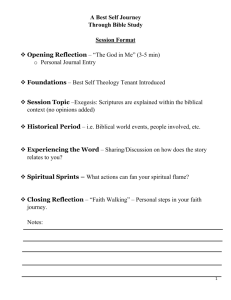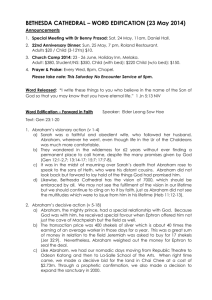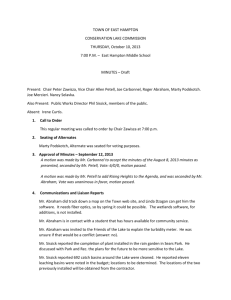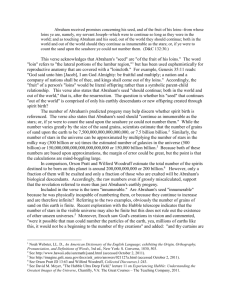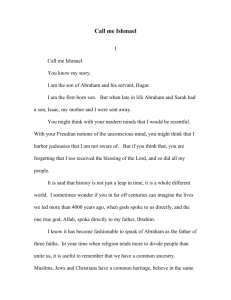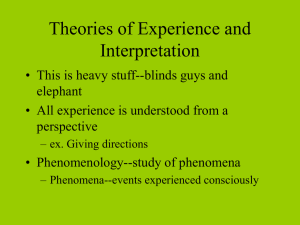`Odysseus` Scar` Mimesis: The Representation of Reality in Western
advertisement
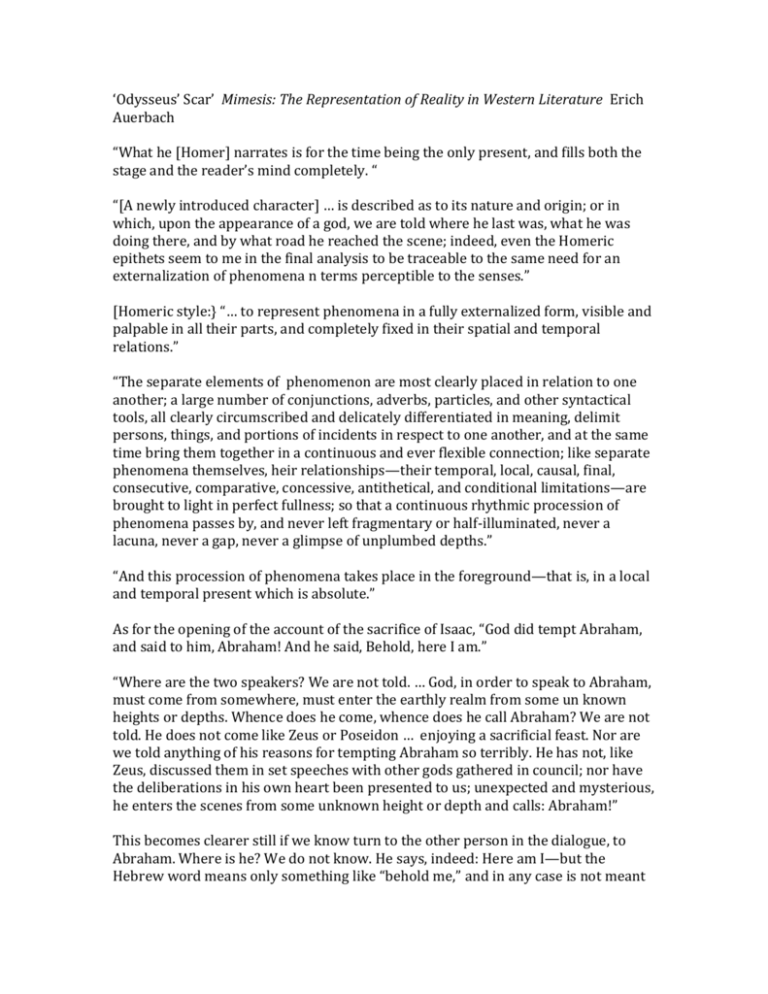
‘Odysseus’ Scar’ Mimesis: The Representation of Reality in Western Literature Erich Auerbach “What he [Homer] narrates is for the time being the only present, and fills both the stage and the reader’s mind completely. “ “[A newly introduced character] … is described as to its nature and origin; or in which, upon the appearance of a god, we are told where he last was, what he was doing there, and by what road he reached the scene; indeed, even the Homeric epithets seem to me in the final analysis to be traceable to the same need for an externalization of phenomena n terms perceptible to the senses.” [Homeric style:} “… to represent phenomena in a fully externalized form, visible and palpable in all their parts, and completely fixed in their spatial and temporal relations.” “The separate elements of phenomenon are most clearly placed in relation to one another; a large number of conjunctions, adverbs, particles, and other syntactical tools, all clearly circumscribed and delicately differentiated in meaning, delimit persons, things, and portions of incidents in respect to one another, and at the same time bring them together in a continuous and ever flexible connection; like separate phenomena themselves, heir relationships—their temporal, local, causal, final, consecutive, comparative, concessive, antithetical, and conditional limitations—are brought to light in perfect fullness; so that a continuous rhythmic procession of phenomena passes by, and never left fragmentary or half-illuminated, never a lacuna, never a gap, never a glimpse of unplumbed depths.” “And this procession of phenomena takes place in the foreground—that is, in a local and temporal present which is absolute.” As for the opening of the account of the sacrifice of Isaac, “God did tempt Abraham, and said to him, Abraham! And he said, Behold, here I am.” “Where are the two speakers? We are not told. … God, in order to speak to Abraham, must come from somewhere, must enter the earthly realm from some un known heights or depths. Whence does he come, whence does he call Abraham? We are not told. He does not come like Zeus or Poseidon … enjoying a sacrificial feast. Nor are we told anything of his reasons for tempting Abraham so terribly. He has not, like Zeus, discussed them in set speeches with other gods gathered in council; nor have the deliberations in his own heart been presented to us; unexpected and mysterious, he enters the scenes from some unknown height or depth and calls: Abraham!” This becomes clearer still if we know turn to the other person in the dialogue, to Abraham. Where is he? We do not know. He says, indeed: Here am I—but the Hebrew word means only something like “behold me,” and in any case is not meant to indicate the actual place where Abraham is, but a moral position in respect to God, who has called him—Here am I awaiting thy command.” “After this opening, … the story itself begins: everyone knows it; it unrolls with no episodes in a few independent sentences whose syntactic connection is of the most rudimentary sort. … A journey is made, because God has designated the place where the sacrifice is to be performed; but we are told nothing about the journey except that it took three days. “ “… God says, ‘Take Isaac, thine only son, whom thou lovest.’ But this is not a characterization of Isaac as a person, apart from his relation to his father and apart from the story; he may be handsome or ugly, intelligent or stupid, tall or short, pleasant or unpleasant—we are not told. Only what we need to know about him as a personage in the action, here and now, is illuminated, so that it my become apparent how terrible Abraham’s temptation is, and that God is fully aware of it. By this example of the contrary, we see the significance of the descriptive adjectives and digressions of the Homeric poems…” Direct discourse is used differently. “The personages speak in the Bible story too; but their speech does not serve, as does speech in Homer, to manifest, to externalize thoughts—on the contrary, it serves to indicate thoughts which remain unexpressed. God gives a command in direct discourse, but he leaves his motives and his purpose unexpressed; Abraham, receiving the command, says nothing and does hat he has been told to do. … Isaac ventures to ask about the ram, and Abraham gives the well-known answer. Then the text repeats: ‘So they went both of them together.’ Everything remains unexpressed.“ “It would be difficult, then, to imagine styles more contrasted than those of these two equally ancient and equally epic texts. On the one hand, externalized, uniformly illuminated phenomena, at a definite time and in a definite place, connected together without lacunae in a perpetual foreground; thoughts and feelings completely expressed; events taking place in leisurely fashion and with very little suspense. On the other hand, the externalization of only so much of the phenomena as is necessary for the purpose of the narrative, all else left in obscurity; the decisive points of the narrative alone are emphasized, what lies in between is nonexistent; time and space are undefined and call for interpretation; thoughts and feeling remain unexpressed, are only suggested by the silence and the fragmentary speeches permeated with the most unrelieved suspense and directed toward a single goal, remains mysterious and ‘fraught with background’.”
